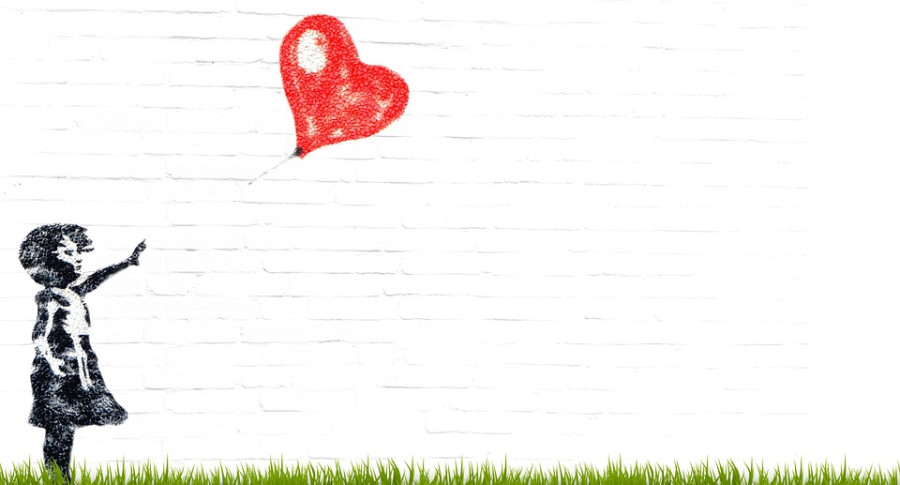Culture & Lifestyle
Letting go
The hardest part about letting go is the unhealthy attachment we develop over time with people or possessions.
Dristy Moktan
We humans often have a tendency to focus our lives on things that give us a hard time. It's human nature to fight for the things that matter to us. Most of us have struggled to let go of things that were very dear to us at one point in time, whether it was our former connections with other people or holding onto the rage of being mistreated as a child. We hold onto things we can't change, which isn't healthy for us. However, there comes a point in our lives when we realise that continued pursuit of things that no longer benefit us will only prevent us from fully appreciating and savouring the current moment.
People frequently assume that to let go, we must entirely give up on particular people, objects, or memories from our past, but this is not the case. In psychology, to let go simply means to let it be. Letting go is more about mentally releasing our attachment to something. Instead of wanting things to be the same way as it was or someone to be in our lives like in the past, we let go of those needs and desires and accept what has happened or what will happen. As a result of this acceptance, we can enjoy the things we experience, think, and feel in the current moment more deliberately.
The hardest part about letting go is the unhealthy attachment we develop over time with possessions or people, which makes us question our ability to adapt to changes. We become comfortable having that person or thing in our lives and do not allow ourselves to explore the situations of not having them anymore. And when we aren't in that same circumstance, we cling to the things we once had. For instance, if we already know ourselves as someone in a relationship with another person, we might not know ourselves that well if the relationship ends. And because we weren't ready for this, it gets difficult for us when the relationship ends. Then, we wonder, "Who am I without this person?" "Is my life going to stay the same?" We start feeling unsure of ourselves and our future. We become uncertain of who we are or how we feel. As a result, we get stuck, clinging to both good and bad things in our lives, afraid to let go. Knowing ourselves is essential, but believing you are worth more than what you leave behind is more important. This is because life is not always rainbows and sunshine. We need to be ready for the rain and storms so we can face them more graciously when they occur.
Most of the time, our past is what we hold on to. People need a lot of courage to let go of their past because they think that if they do, they will also be letting go of an essential component of their identity. We encounter some difficulties in life, and we begin to long for the good old times. This could be sincerely yearning for someone to return to your life, wanting for your former career despite not enjoying it all that much, or even holding out hope that someone significant is still alive and at your side. But choosing to hold on to the past will only prevent you from developing a solid sense of who you are—a self that is defined by who you want to be rather than by your past. As strange as it may sound, some people find comfort in their unpleasant sentiments if that is what they are used to, which makes letting go difficult because they don't know who they are without their suffering.
We will only complicate matters for ourselves if we dwell on the past or hold onto the pain. Wishing for things to remain the same won't make them so. We must come to terms with the fact that things have changed and embrace the present while expressing deep gratitude for the past. Past experiences will always be appreciated and viewed as beautiful lessons. You might be unsure of where to begin when it comes to letting go, but the thing to keep in mind here is that it will be a gradual process, so starting small is a good choice.
Always begin with self-belief and refrain from telling yourself, "I can never achieve it." We shouldn't let our restrictive beliefs about ourselves determine who we are. Always keep an open mind and push yourself to do things outside your comfort zone. Take into consideration that you are more powerful than you may think.
Another crucial step in the process of letting go is forgiveness. You won't be able to go forward if you are unable to forgive yourself or others. Remember that you are forgiving because you sincerely want to do so for yourself, not for anyone else.
You will often benefit greatly from allowing yourself to experience negative emotions. We will only experience more misery if we disregard our unpleasant feelings. Always give yourself permission to experience sadness or loss. Avoid suppressing or disengaging from your actual emotions. Face your worries and resist letting the "what ifs" imprison you.
The things we cannot change must be accepted. The feeling of realising this is exhilarating on its own. Never be scared to make mistakes, either. Mistakes are a necessary aspect of learning. Making mistakes makes us human.
Express yourself in whatever way suits you best. Don't hold your feelings within. Although letting go might be unexpectedly difficult, you will succeed if you trust the process.
—
Moktan is a psychosocial counsellor who specialises in psychosocial counselling. She works at Happy Minds, a mental health and well-being platform.




 8.4°C Kathmandu
8.4°C Kathmandu















